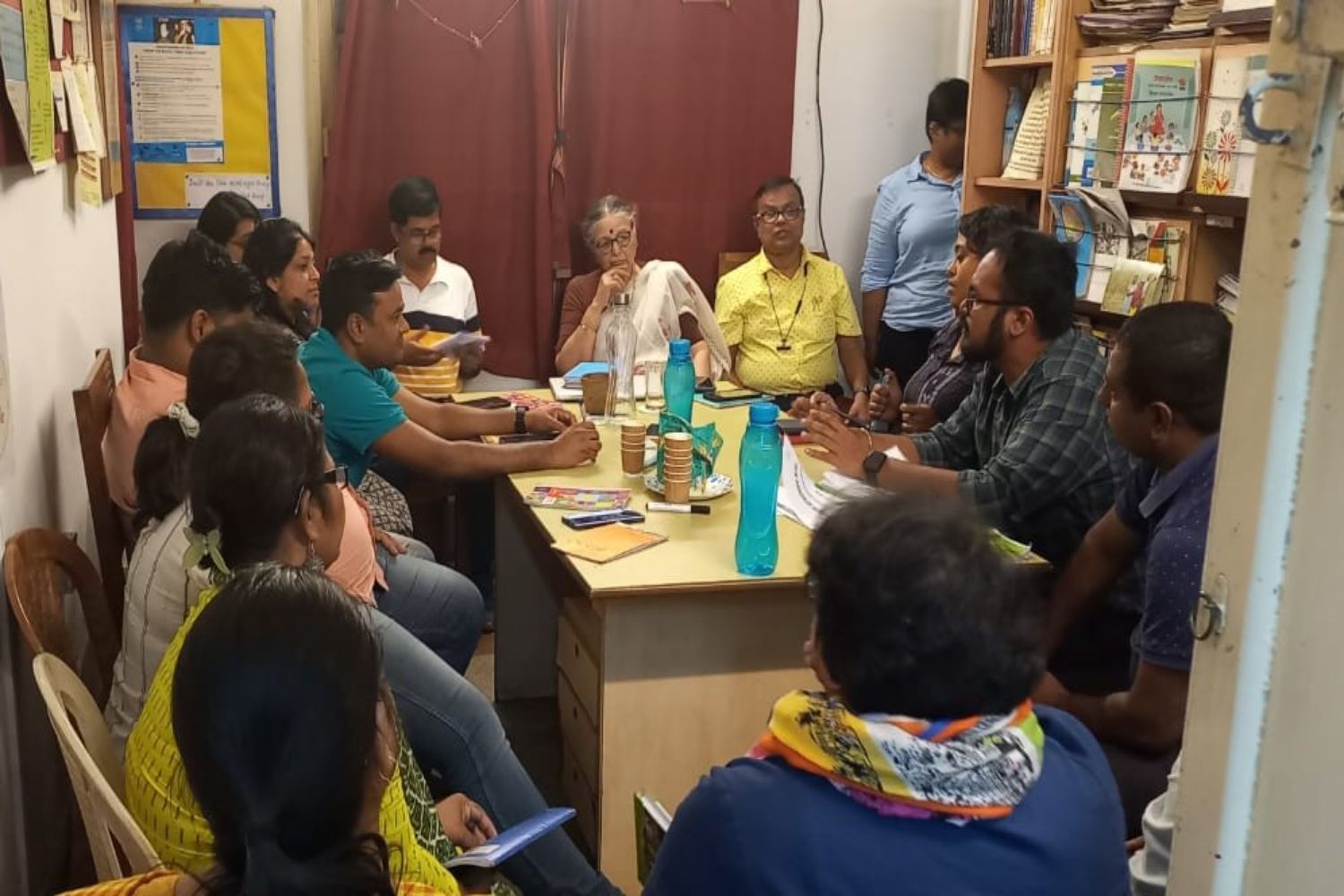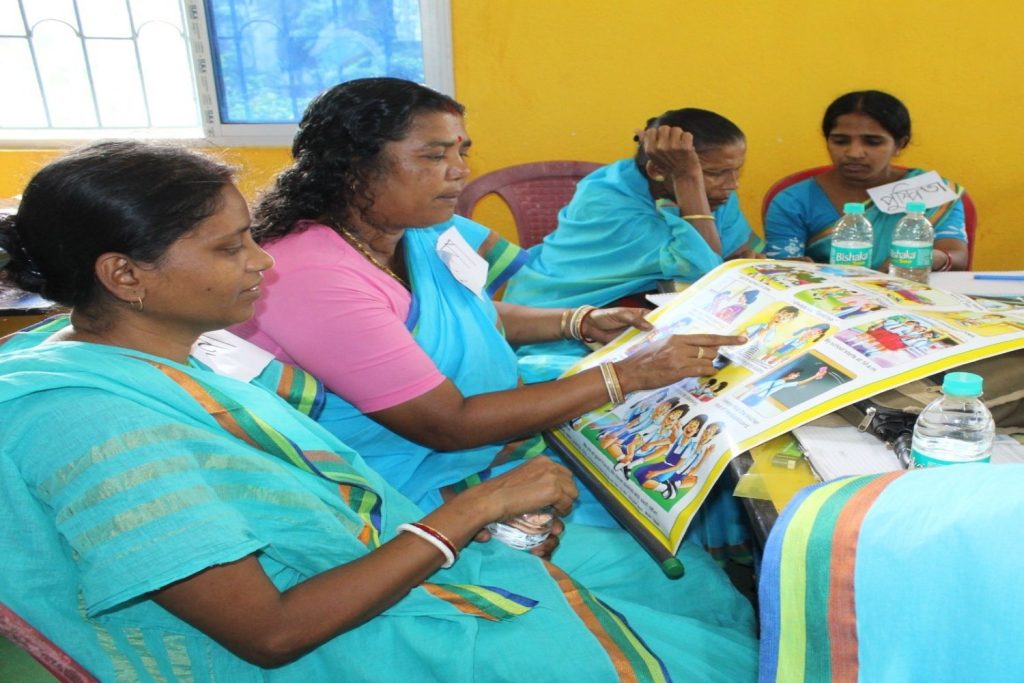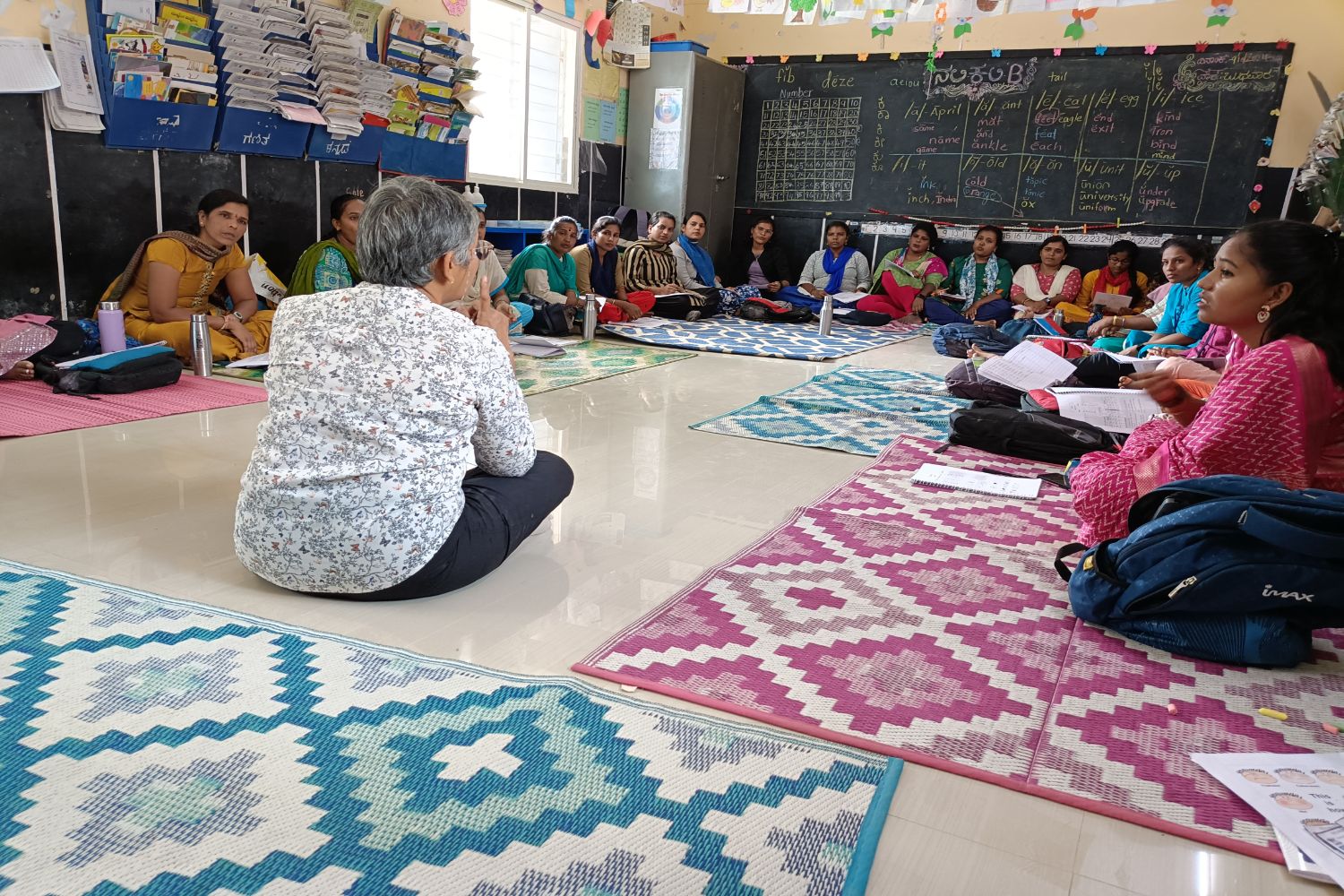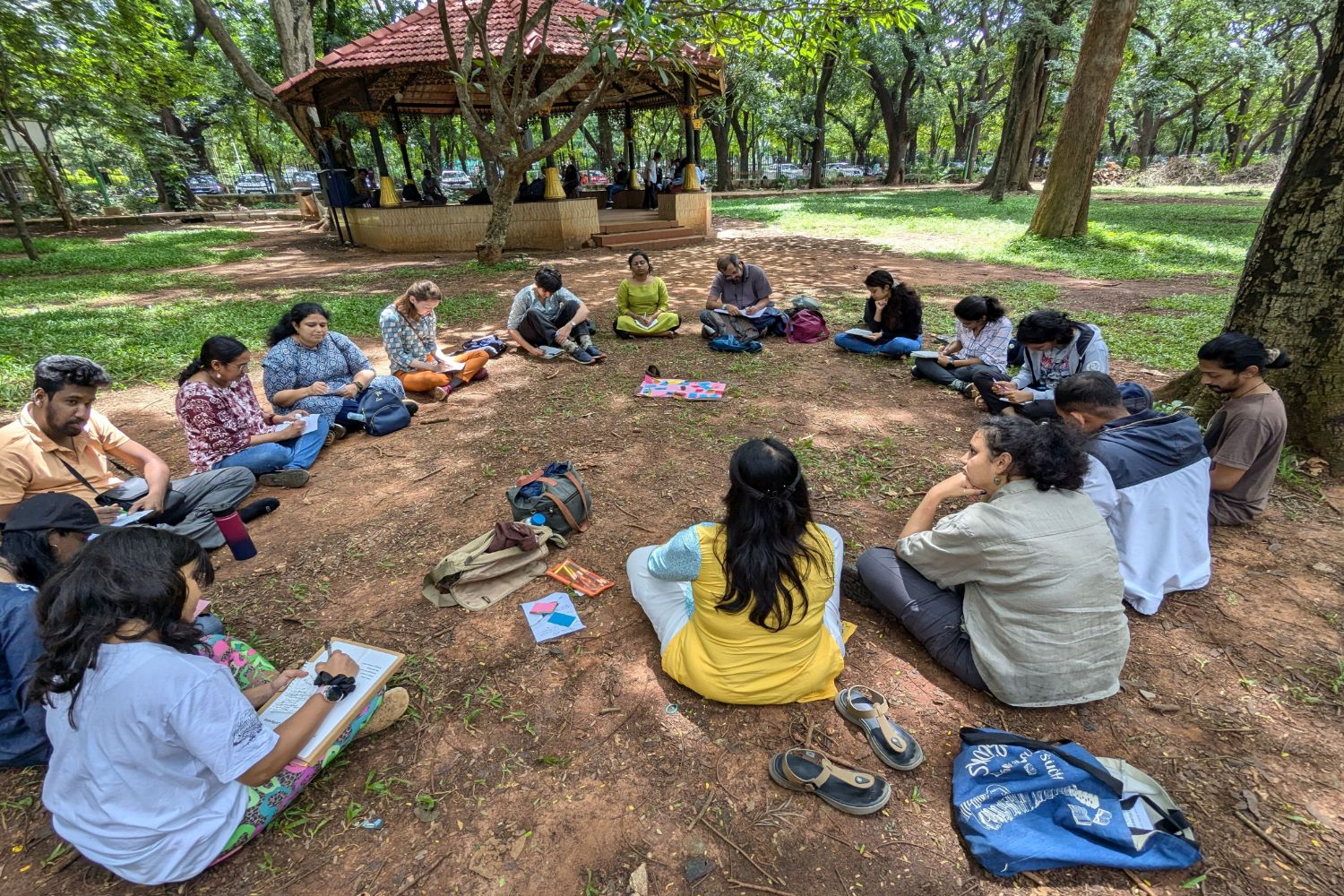An upstream journey
In the “Resources & Reviews” section, Atanu Sain reflect upon their experiences as participants of two different workshops/courses run by Digantar, and share how these played important roles in shaping their journeys in education.

Joining the ‘Philosophy of education’ course offered by Digantar was a turning point in my professional journey. By that time, it had spanned 21 years in the development sector, particularly in education.
When I first received the course schedule, I assumed the structure would be purely theoretical, with a focus on abstract intellectual exercises. As a practitioner, I typically favoured hands-on activities in capacity-building programs.
At Vikramshila, my organization, we had always emphasized acting at the microlevel while analysing those actions in the light of larger, systemic issues. We had been engaging regularly in discussions on macro-level concerns. We were striving to understand educational theories and test them in diverse contexts.
This constant feedback loop enabled us to create learning environments that were both theoretically sound and practically effective. By integrating theory with practice, we continuously refined and improved our approach.
However, I was initially sceptical about the course. I couldn’t imagine how philosophical discussion alone could lead to practical solutions for driving systemic changes in education. But to my surprise, by the third day, I found myself thoroughly engaged. The discussions were intellectually stimulating and deeply enriching. It felt like an ‘epistemic investigation’, a shared journey of discovery, in which both the participants and the facilitators travelled together.
For a course to be successful, it needs thoughtful design. It also requires a team of skilled and expert facilitators, and participants who are open to learning. In this particular course, the facilitators were highly regarded professionals in the field. They had years of experience and deep expertise. Most participants, too, brought substantial experience to the table, engaging actively in meaningful, epistemic discussions.

The course covered a broad range of topics. These included the philosophical, sociological and psychological perspectives of education, policy analysis, and qualitative research and methodology. The course also covered subject-specific pedagogies for languages, science, mathematics, and social sciences.
Each area was facilitated by experts who were leaders in their respective fields. Their contributions helped enrich the course content and discussions. Participants were also exposed to reflections on largescale successful interventions, such as the Hoshangabad Science Teaching Programme (HSTP).
This helped them understand the importance of contextualizing theory in practice. A particularly insightful aspect of the course was the emphasis on constitutional values such as equity, justice and secularism, and their essential role in shaping the idea of quality of education.
The course provided participants with a wealth of well-researched readings on various topics. These deepened our understanding of diverse educational perspectives.
One of the most commendable aspects of the facilitation was the open, inclusive approach taken by the facilitators. Participants were invited and encouraged to contribute their thoughts. Every idea was thoughtfully incorporated into the discussion. No suggestion or opinion was dismissed without thorough examination.
This fostered a sense of confidence. It also created rich and diverse dialogues. I believe this course effectively helped me bridge the gap between theory and practice. I became better equipped to guide teachers pragmatically, applying theoretical concepts while considering practical constraints such as time, class size, and the needs of individual students. Additionally, this experience has broadened my perspective. This helps me to approach issues with greater understanding before and during the process of addressing them.
I am confident that if at least two individuals from an organization complete this course, it will significantly influence their discourse and foster positive change.
In today’s complex and ambiguous world, straightforward answers are rare. This makes it essential to adopt a holistic approach. We also need to engage in rigorous intellectual exercises when tackling challenges. I believe the ‘Philosophy of education’ course has the potential to develop reflective individuals capable of driving sustainable change.




No approved comments yet. Be the first to comment!